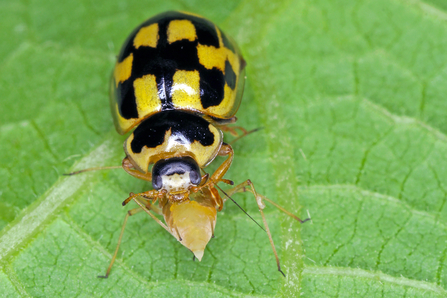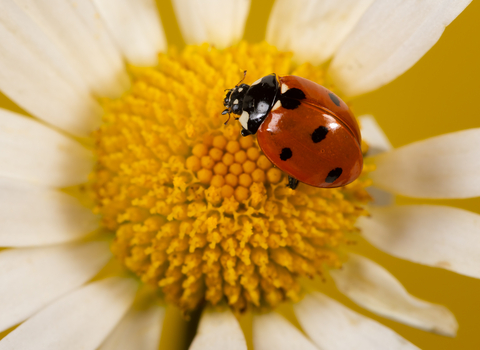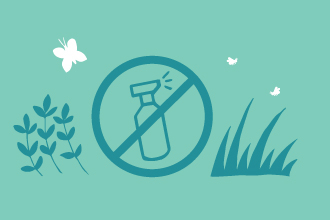Say it, don't spray it
The UK's insect populations are in peril. One recent study reported that flying insects declined by almost 60% between 2004 and 2021. There are lots of factors driving these declines, but we can all help by ditching the chemicals used in gardens. Avoid pesticides and weedkillers - instead, encourage a healthy ecoystem of insects and their predators to maintain the balance in your garden.

14-spot ladybirds are the gardener's friend,. Both larvae and adults feed on aphids. Photo © iStock.com/Tomasz Klejdysz
The more wildlife you attract, the better the balance will be. Frogs and toads will feast on garden slugs, ladybirds and hoverfly larvae will eat the aphids that appear on your plants, and blue tits will catch huge numbers of caterpillars. We've got some great tips to get you started!


